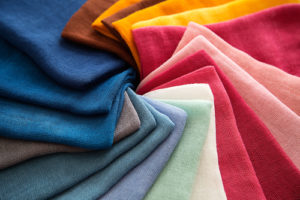
Hemp Fiber Facts
Hemp is a fiber known for a hundred uses. It has great use in textiles, which are being recognized and acted upon today. It is very effective in making daily wear clothing as and it can blend very well with cotton, linen, silk, or man-made fibers like lycra and lyocell. Textile manufacturers USA are even considering an up-scaling of hemp use in the industry. Below are a few properties of hemp that makes it a great choice for wholesale fabric.
Properties of Hemp
Hemp fibers are easy to be dyed with bright and dark colors. It is a lustrous fiber with characteristic joints and nodes of linen. They show great variety in length. While the domestic fibers may be ¾ inch to 1 inch long, the industrial version may be a few inches long. In fact, it has the lowest elongation percentage of all natural fibers.
Hemp can also act as moth resistant. It has excellent insulation properties, as it boasts of the best ratio of the heat capacity of all fibers. It possesses the softness and warmth of all other fibers. Overall, the durability you find in hemp is pretty impressive. It has the property of breathing, and hence, facilitates use in textiles that can be worn during the summers. It is biodegradable too, and due to their excellent resistance to mildew and microbes, hemp fabrics are ideal for use in clothing, awnings, carpets, tarps, and sails.
There are thirty varieties of hemp, although only the ones with adequate tensile strength, luster, and length are preferred for industrial use. Sometimes, it resembles flax and its fibers are confused as linen. On account of its hardness and stiffness, it cannot be bleached without damage to the fiber. In addition, due to the low elasticity value, it cannot be woven into fine fabrics. However, this strength comes in handy for use in carpet and rugs.
Ship cordage can be easily crafted out of hemp since it does not lose its strength or be weakened with exposure to water. Due to this attribute, hemp textile is ideal for use in winters and summers. It helps you stay warm in winters, and keeps you cool in summers; it is highly effective in blocking the harmful ultraviolet rays as well. In addition to this property, hemp is more absorbent on exposure to reactive dyes, sulfur dyes, and vat dyes. This protects the material from fading on prolonged exposure to the sun.

